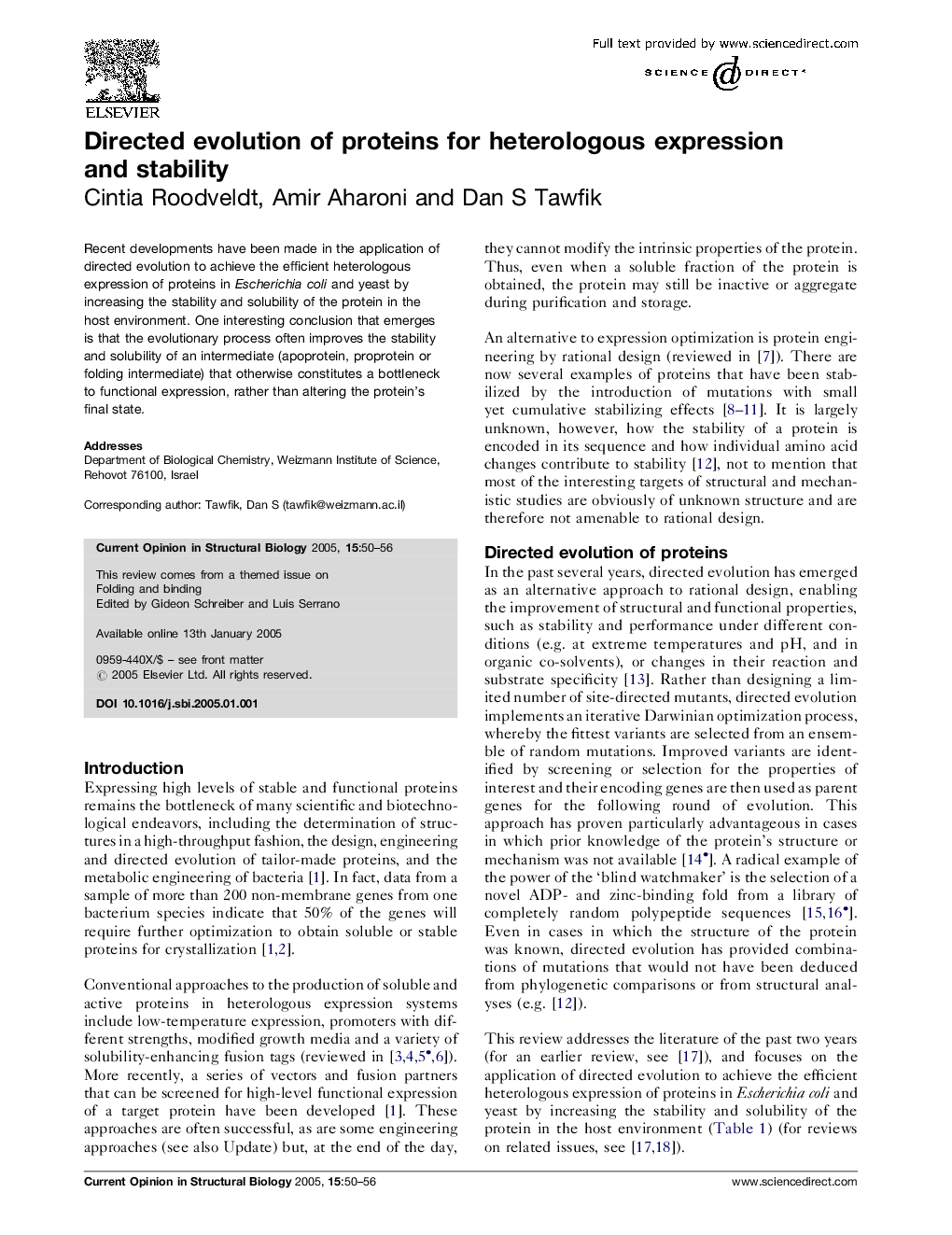| Article ID | Journal | Published Year | Pages | File Type |
|---|---|---|---|---|
| 10822882 | Current Opinion in Structural Biology | 2005 | 7 Pages |
Abstract
Recent developments have been made in the application of directed evolution to achieve the efficient heterologous expression of proteins in Escherichia coli and yeast by increasing the stability and solubility of the protein in the host environment. One interesting conclusion that emerges is that the evolutionary process often improves the stability and solubility of an intermediate (apoprotein, proprotein or folding intermediate) that otherwise constitutes a bottleneck to functional expression, rather than altering the protein's final state.
Related Topics
Life Sciences
Biochemistry, Genetics and Molecular Biology
Biochemistry
Authors
Cintia Roodveldt, Amir Aharoni, Dan S Tawfik,
